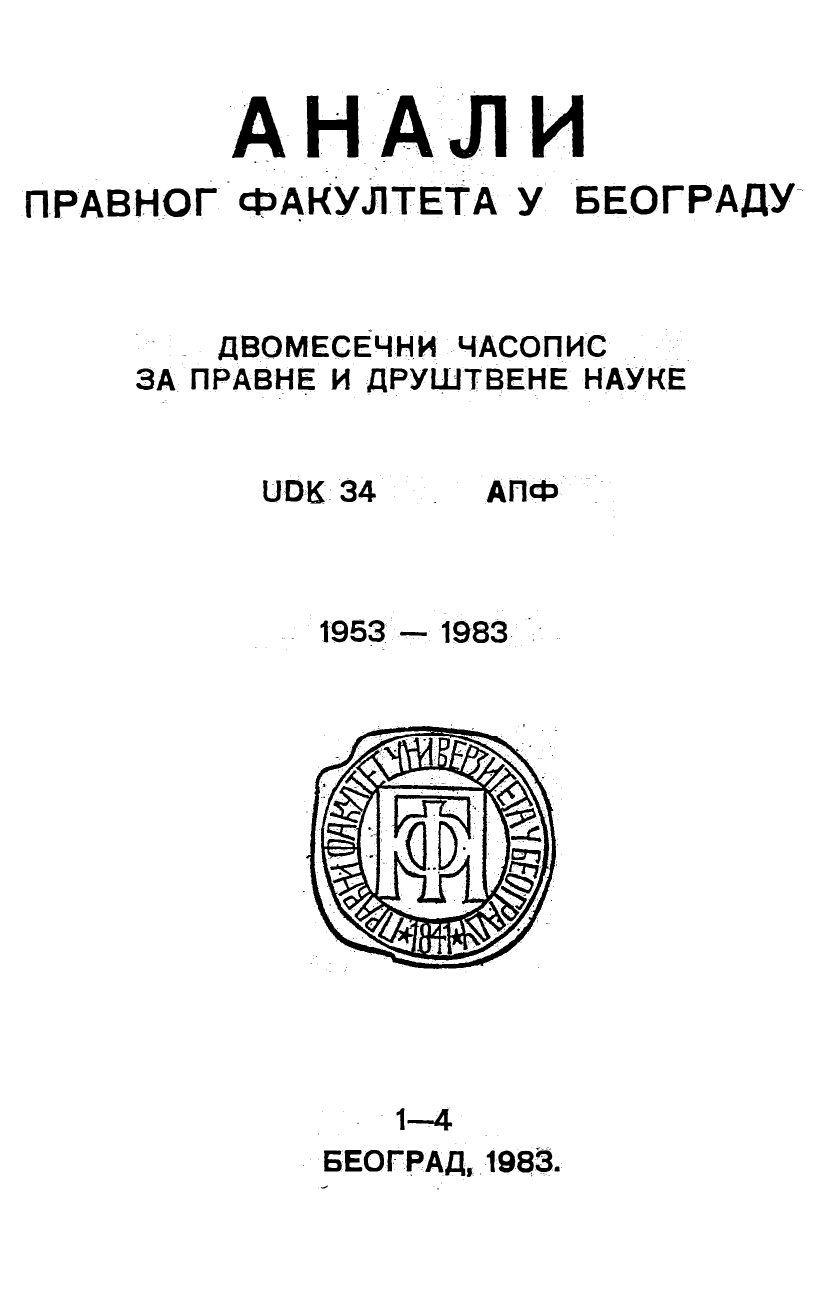ДИЈАЛЕКТИКА ОТУЂЕЊА И РАЗОТУЂЕЊА
THE DIALECTICS OF ALIENATION AND DISALIENATION
Author(s): Jovica TrkuljaSubject(s): Philosophy, Philosophical Traditions, Marxism
Published by: Правни факултет Универзитета у Београду
Summary/Abstract: The phenomenon of alienation today has extraordinary theoretical and practical significance for contemporary social movements and the understanding of the position of man in the contemporary world. Thus has the problem of alienation become the topic of wide-spread interest of contemporary thought, while some regard it as the central problem of our time. There is in this essay a critical analysis of the conceptions according to which alienation is a fundamental, structural peculiarity of man, as well as those according to which alienation is a historical phase in the continuous process of liberation of man. The author states that the question of the possibilities for the transformation of alienation into the reverse process is fundamental for the understanding of Marx’s conception of alienation. The answer to this question may be sought in the dialectics of the process of alienation and its reverse process as components of the historical process. Marx, in his conception of the dialectics of alienation and its reverse process, has been of the opinion that man is necessarily compelled to struggle against alienation and also to make efofrts for the turning of this into is reverse process. Communism is not the completely formed social system, but a historical movement for the change of the existing state of man’s affairs. This viewpoint of Marx’s had provoked and is still provoking a series of conflicts. There are in it the traces of socio^ -utopian heritage, so that this unrealistic optimism and utopian elements in Marx’s vision of communism, as well as his occasional abandonment of dialectics etc.. After analysis of these viewpoints and dilemmas, the author critisized opposite dogmatic views according to which total elimination of alienation id possible after the take-over of political power for the account of the working class and socialization of private ownership of the means of production. That is why, in contrast to the thesis of the irrelevance of the problem of alienation in socialism, he sets forth the thesis that the question of alienation is one of the main problems of socialism. Socialism is more developed to the extent to which the concern for man’s well-being is more concrete, with a view to the actual overcoming of alienation.
Journal: Анали Правног факултета у Београду
- Issue Year: 31/1983
- Issue No: 1-4
- Page Range: 722-734
- Page Count: 13
- Language: Serbian

